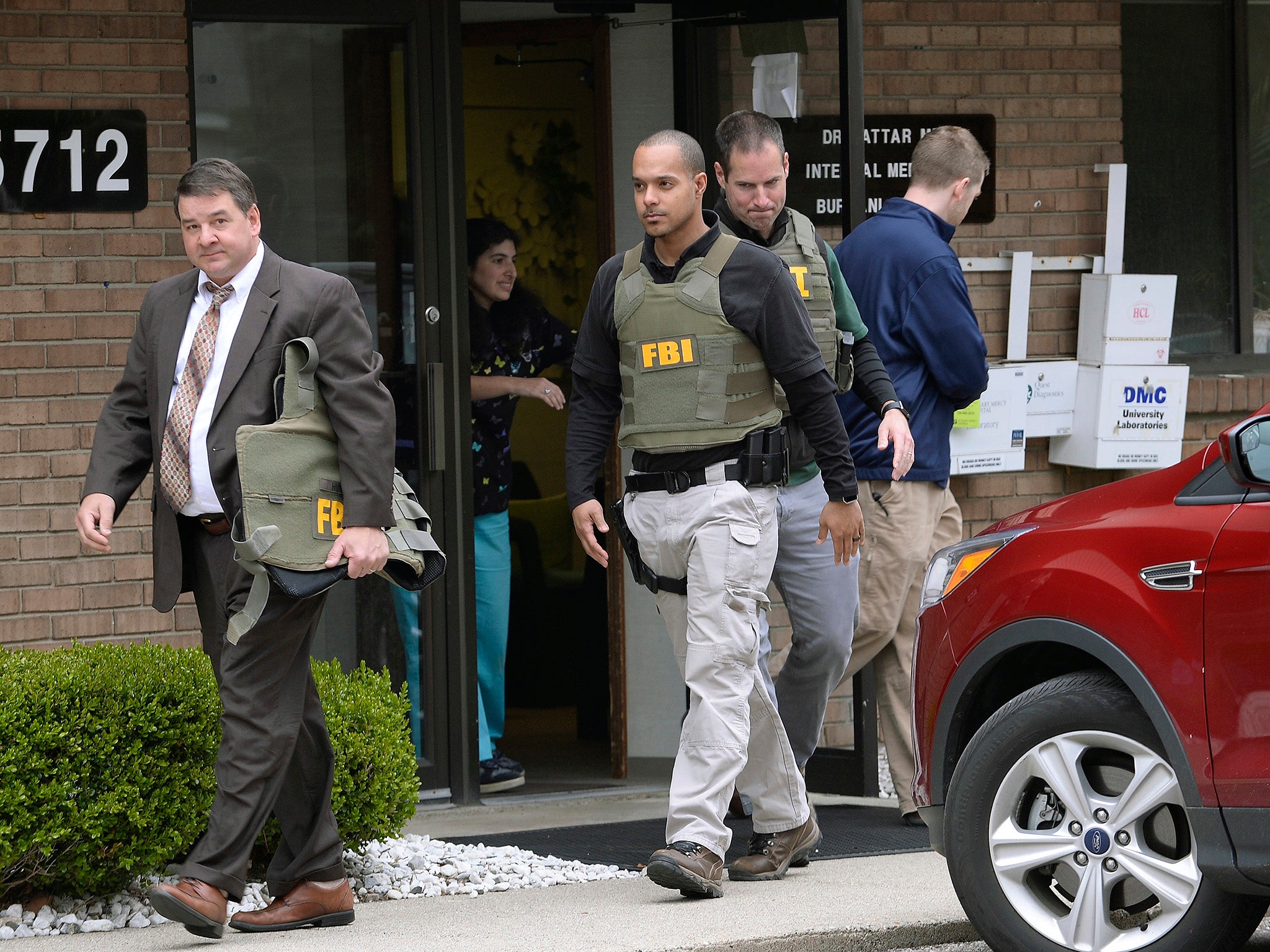Two more charged in first US female genital mutilation case
Jumana Nagarwala is accused of cutting two seven-year-olds while Dr Fakhruddin Attar and his wife Farida Attar assisted

Your support helps us to tell the story
From reproductive rights to climate change to Big Tech, The Independent is on the ground when the story is developing. Whether it's investigating the financials of Elon Musk's pro-Trump PAC or producing our latest documentary, 'The A Word', which shines a light on the American women fighting for reproductive rights, we know how important it is to parse out the facts from the messaging.
At such a critical moment in US history, we need reporters on the ground. Your donation allows us to keep sending journalists to speak to both sides of the story.
The Independent is trusted by Americans across the entire political spectrum. And unlike many other quality news outlets, we choose not to lock Americans out of our reporting and analysis with paywalls. We believe quality journalism should be available to everyone, paid for by those who can afford it.
Your support makes all the difference.Two more people have been charged in connection with the female genital mutilation (FGM) of two seven-year-olds in the first ever federal case in the US.
The defendants are part of a religious and cultural community called Dawoodi Bohra, an Islamic sect based in India, which is alleged to practise FGM.
The procedure has been condemned by the United Nations and is banned in the US.
Detroit Physician Jumana Nagarwala, 44, has been accused of cutting two Minnesota girls, leaving them with scars and lacerations.
Ms Nagarwala is in jail awaiting trial after a federal judge deemed her a flight risk and threat to the community.
Two more people, Dr Fakhruddin Attar, 53, and his wife, Farida Attar, 50, were arrested at their medical office in Livonia, west of Detroit, Michigan, where the alleged procedures were performed in February.
They were charged with conspiracy, female genital mutilation and aiding and abetting.
Investigators saw the two girls and their mothers arrive at the Burhani Medical Clinic with Dr Attar, his wife and Ms Nagarwala already inside, CNN reported.
According to court documents, the girls said they were told they were going to Detroit for “a special girls' trip”. One of the girls said that after the procedure “she could barely walk, and that she felt pain all the way down to her ankle”.
The girls said their parents told them not to talk about what happened and one couple described it as a "cleansing" of extra skin.
Dr Attar told investigators Ms Nagarwala saw patients in his clinic five to six times a year and said he believed he had done nothing to violate the law.
Ms Nagarwala’s attorney, Shannon Smith, said the procedure did not involve mutilation but was a benign religious ritual.
She also said the clinic was used to keep the procedure sterile, CNN reported.
According to The Detroit News, members of the Dawoodi Bohra group in the area belong to the Anjuman-e-Najmi mosque, the only Dawoodi Bohra mosque in the area.
Leaders of the mosque released a statement saying they were offering assistance to investigators.
“Any violation of US law is counter to instructions to our community members. It does not reflect the everyday lives of the Dawoodi Bohras in America," the statement said.
“It is an important rule of the Dawoodi Bohras that we respect the laws of the land, wherever we live. This is precisely what we have done for several generations in America. We remind our members regularly of their obligations.”
No charges have been filed against the parents of the girls.
There are no medical, health or hygienic reasons for FGM. Instead, it is linked to beliefs about honour, women’s sexuality and marriage and is seen as a rite of passage into adulthood.
In 2016, Unicef estimated 200 million women in 30 countries had undergone the painful procedure.
Critics say FGM can cause complications during childbirth, make intercourse painful and eliminate any pleasure a woman can derive from sex.
In 2012, a report by the US Centers for Disease Control and Prevention found that roughly 513,000 women and girls in the United States were at risk of undergoing FGM, which was more than twice an earlier estimate based on 1990 data.
Join our commenting forum
Join thought-provoking conversations, follow other Independent readers and see their replies
Comments